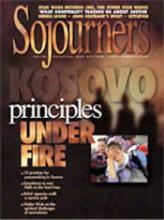That Howard Thurman is not a household name is a situation that may soon change. As more and more folks search for an aspect of spirituality in their lives, the facile, self-centered New Age spirituality popularized by Oprah Winfrey's weekday lineup of best-selling authors may give way to the higher ground exemplified by Thurman. A Strange Freedom: The Best of Howard Thurman on Religious Experience and Public Life, edited by Walter Earl Fluker and Catherine Tumber, is a marvelous introduction for those unfamiliar with the man described variously as "mystic" and "prophet." For the many influenced by Thurman's prodigious body of work—which includes essays, poems, lectures, meditations, and, of course, sermons—this 340-page compilation is a welcome new dish for an ever-expanding feast.
Born November 18, 1899, in Daytona Beach, Florida, Thurman was raised in the brutal climate of Jim Crow. It was his grandmother, Nancy Ambrose, who taught him to value knowledge, though she could neither read nor write. Thurman did his undergraduate work at Morehouse College in Atlanta, and then attended Rochester (New York) Divinity School. He took on his first pastoral role at Mount Zion Baptist Church in Oberlin, Ohio, where he conducted his first experiments with integrated worship in what Luther E. Smith, author of Howard Thurman: The Mystic as Prophet, calls "the context of realizing community."
Read the Full Article
